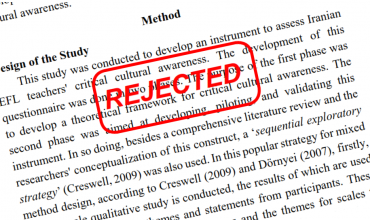Demystifying the Maze: A Guide to Types of Research Articles
The academic world thrives on the continuous generation and dissemination of new knowledge. Research articles serve as the cornerstone of scholarly communication, presenting original research findings, analyses, and interpretations. However, navigating the diverse landscape of research articles can be daunting. This comprehensive guide explores the most common types of research articles, equipping you with a clear understanding of their characteristics and purposes.
Understanding the Foundation: What is a Research Article?
A research article is a formal written document published in a peer-reviewed academic journal. It presents the results of original research conducted by a scholar or research team. Research articles are characterized by:
- Rigorous Methodology: The research design, data collection methods, and data analysis techniques are clearly described and adhere to established scientific principles.
- Critical Analysis: The article interprets the research findings in the context of existing knowledge and identifies potential limitations of the study.
- Originality: The research contributes new knowledge to a specific field or offers a fresh perspective on existing scholarship.
- Peer Review: The article undergoes a rigorous review process by experts in the field before publication, ensuring the research is methodologically sound and the findings are significant.
A Spectrum of Scholarship: Exploring Different Types of Research Articles
The diverse world of research articles encompasses various formats, each serving a specific purpose:
-
Original Research Articles:
- These are the most common type of research article. They present detailed accounts of original research, typically including an introduction, literature review, methodology section, results section, discussion section, and conclusion.
- Original research articles aim to answer a specific research question and contribute new knowledge to the field.
- They often include figures, tables, and graphs to present data and research findings visually.
-
Review Articles:
- Review articles offer a comprehensive overview of a specific research topic or area. They synthesize existing scholarship, identify key findings, and highlight areas for future research.
- Unlike original research articles, they do not present new data but instead critically analyze the existing research landscape.
- Review articles are valuable resources for researchers seeking to gain a deeper understanding of a particular field or identify relevant studies for their own research.
-
Short Reports or Letters:
- These are concise articles that present preliminary findings, methodological advancements, or novel observations.
- They are shorter than original research articles and may not include the same level of detail regarding methodology and analysis.
- Short reports or letters can be a good option for quickly disseminating new research findings or sparking scientific discussions.
-
Case Studies:
- Case studies delve deeply into a single individual, event, or situation. They provide a detailed description and analysis of the case, offering insights into complex phenomena.
- Case studies are often used in social sciences, medicine, and education to explore real-world applications of theory or to highlight unique or exceptional cases.
- While not all journals publish case studies, they can be valuable for understanding specific situations in greater depth.
-
Methodological Articles:
- These articles focus on the methods used to conduct research. They may describe a new research technique, propose modifications to existing methodologies, or offer guidelines for implementing specific research designs.
- Methodological articles are particularly valuable for researchers seeking to improve their research methods or learn about new research tools.
- Not all journals publish methodological articles, but they can be crucial for advancing research practices within a field.
Choosing the Right Format:
Selecting the appropriate type of research article depends on the nature of your research and its intended contribution:
- Original research findings are best presented in original research articles.
- If your goal is to synthesize existing research, a review article might be a better choice.
- For preliminary findings or methodological advancements, consider a short report or letter.
- Case studies are suited for in-depth analyses of specific situations.
- Methodological articles are valuable for sharing new research methods or techniques.
Beyond the Basics: Additional Considerations
Understanding the different types of research articles empowers you to:
- Navigate academic journals: Identify the types of articles published by journals relevant to your field.
- Develop your research skills: Learn about various research methodologies and how they are presented in different article formats.
- Effectively communicate your research: Choose the format that best suits your research findings and target audience (other researchers, practitioners, or a broader audience).
- Critically evaluate research: Deconstruct research articles, understanding the methodology, limitations, and the overall contribution of the research.
Conclusion:
Research articles represent the building blocks of scholarly knowledge.
Journals usually publish research papers under a specific type. Knowing them could be helpful in writing a paper, so that you can choose one in order to write your own, or it would be a guide of how to extract a paper from your theses.
Types of research papers
Original research
An original research explains all the steps of a complete research and contains all parts of a research paper.
In this type of research article, the researcher should explain what has done in details. So an original research paper contains a review of the literature and methodology in addition to findings and results.
Most of the research articles are written in this format.
Short reports or letters
In this type of research article, the researcher give a short report of data. The data are collected from an original research, but due to time limitations, the researcher provide a short report to reveal the results in a short and summarized format as soon as possible.
It happens usually in fast growing field of studies in which there is a competition among researchers, in addition sometimes a researcher achieves remarkable results and he/she is keen to provide a short report as soon as possible. The researcher can publish the original research afterwards.
Review articles
Review papers act as the literature review of original researches. In fact, in review papers a summary of previous researches which has been done by other researchers is presented.
Usually editors of a journal ask scientific leaders to write these types of research articles. However you can also send a draft of your work and ask for editor’s opinion.
Case studies
In case studies, the researcher chooses a specific subject to research on. These types of researches are done in depth due to the subject being limited.
The case or subject would be a specific society, individual, event, action existing in a specific time and place.
Methodologies or methods
These kind of papers introduce a new method or questionnaire for measuring a variable, based on previous researches and presented methodologies.




